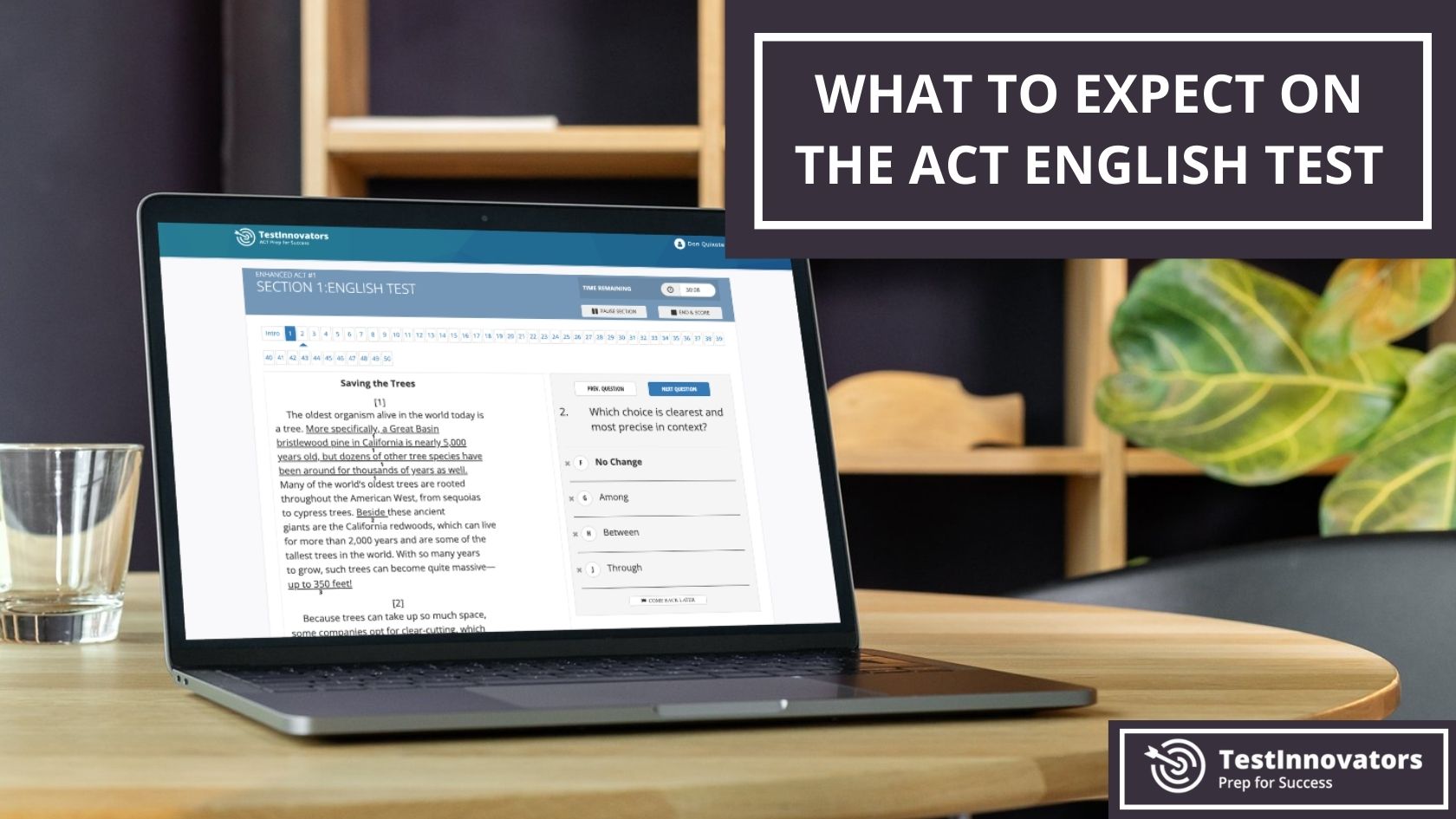How to Build Your ACT Success Plan
Test Innovators2024-01-16T14:22:15-08:00The ACT may seem like an overwhelming hurdle in your college application process. For years, it has been hyped up as one of the most important aspects of your application, and now that it’s finally time to start preparing for the test, you may not be sure where to begin. However, your test prep process doesn’t have to be overwhelming. Here’s our simple, three-step process to craft a fool-proof ACT success strategy.
1. Take a diagnostic practice test
Taking a practice test will help you predict your overall score if you were to take the official test today. The process will also help you pinpoint your strengths and weaknesses in relation to taking a particular test. You will be able to see exactly what you need to work on within each section. For example, whether you’re running out of time while reading passages, spending too long on certain types of science questions, or needing to review certain algebra or probability concepts, taking a practice test will help make you aware of potential areas for improvement.
However, it is important to make sure that the practice tests you choose are accurate to the official test. You can take a Test Innovators practice test or find practice tests in prep books or all over the internet. If you have the 2018 Official ACT guide or Real ACT Prep Guide, or if you’ve found the ACT’s free official practice tests online, our system will provide you with critical diagnostic and timing feedback for free on our platform here.
2. Develop your overall strategy for score improvement
After you’ve taken a practice test, you’ll have a general idea of where you’re starting from and how far you’ll need to go. The next step is to develop your strategy for success on the official test. Consider the following questions:
What target scores are you aiming for?
This may require research of the colleges you are applying to and what scores they generally accept from their candidates for admission. You can look up target ACT score ranges for the schools you’re interested in on CollegeBoard’s database of colleges and universities here.
When will you take the exam, and how many times do you plan to take it?
You can take the ACT up to twelve times, but only six times per year. Be strategic about when you plan to take the test, giving yourself enough time to prepare, but also enough time to take it again if you end up with lower scores than you had aimed for.
Which areas do you need to work on the most?
Which areas will you prioritize in terms of studying? You will probably want to work on all of them, but more than likely you will need to spend more time on certain sections than others, given your own strengths and weaknesses.
How much time will you invest per week?
Do you have a year, or four months to prep? An hour a week over the course of a year or three hours a week over the course of four months will result in the same total number of hours you’ll spend studying. This question depends on how much time you have left before the official test, and how much you need to prepare before test day, based on your target scores.
Which resources will you use to prepare?
Will you consult a tutor or take classes? Do you plan on purchasing prep books, or using online materials? How many practice tests do you plan to take before test day? Pick your resources early on, and make sure that you choose a system (or multiple systems) where you will find value from your investment. Cheaper isn’t always better, but high-end prep materials aren’t always better either.
Sometimes it helps to have a bit of guidance while thinking about your answers to these questions: for a limited time, Test Innovators ACT experts are offering free consultations to help you develop your ACT strategy. This is a $50 value that we are offering for free. You can sign up for a free consultation here.
3. Practice and improve
Once you have determined your plan for ACT success, your next task will be to put in the work. Improving your scores on the ACT requires dedication and consistency, and you cannot afford to put off your prep work until the last minute.
Stick to a schedule and be accountable, but remember that priorities will change as you improve and face new challenges, and your success plan will more than likely be a process. You should be adjusting and readjusting your strategy based on every practice test that you take, and re-determining your priorities based on your continual improvement in different areas. Mastered all of the math content? Time to improve your reading speed for reading passages. Mastered reading? Time to work on your time management in the science section.
Take your preparation one step at a time, and don’t get discouraged if you aren’t reaching your goals immediately or as quickly as you expected. Like any other difficult thing, test preparation is a process.










